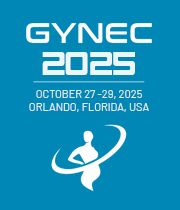Title : Empowering early intervention: AI-based ovarian reserve screening and menopause prediction via OvaRePred
Abstract:
Background: Ovarian reserve varies widely among women and not only determines fertility potential but also influences long-term health outcomes, including cardiovascular, bone, and cognitive aging. Early identification of declining ovarian function and accurate prediction of reproductive milestones are therefore critical for personalized health management and disease screening.
Objective: To refine and validate the simplest configuration of OvaRePred—the AA model based on anti-Mullerian hormone (AMH) and age—enhancing its calibration and clinical utility for women’s health management and early detection of ovarian insufficiency.
Methods: We conducted a retrospective analysis of 31,924 gonadotropin-releasing hormone antagonist cycles at a single center, split into a 16,327-cycle training cohort and a 15,597-cycle validation cohort. Three logistic-regression specifications were compared: the original categorical AA (Model-0), continuous linear AA (Model-1), and continuous polynomial AA (Model-2). Calibration was assessed via calibration plots; discrimination was measured by area under the receiver operating characteristic curve (AUC). We also evaluated the impact of AMH variability by comparing model performance with AMH sampled on stimulation cycle days 2, 6, and 12.
Results: All three models demonstrated comparable discrimination (AUC ≈ 0.85), but Model-2—incorporating a cubic transformation of AMH and a quadratic term for age—achieved markedly superior calibration and was selected for implementation. This optimized model translates AMH-and-age inputs into an intuitive ovarian reserve score (0–100), estimates “endocrine age,” and forecasts ages at which reserve diminishes to critical thresholds (e.g., 50-point score) and perimenopause onset. Single-draw AMH sampling yielded maximal accuracy (AUC = 0.868), with negligible performance loss for modest early-cycle AMH declines (~17%), but significant deterioration when AMH dropped by ~50%.
Conclusions: The updated AA model within OvaRePred delivers high predictive accuracy, excellent calibration, and operational simplicity—requiring only one blood draw. By providing personalized ovarian reserve assessment, endocrine age estimation, and early warning of ovarian insufficiency, OvaRePred supports tailored fertility planning, proactive screening for reproductive-aging–related diseases, and comprehensive women’s health management.



